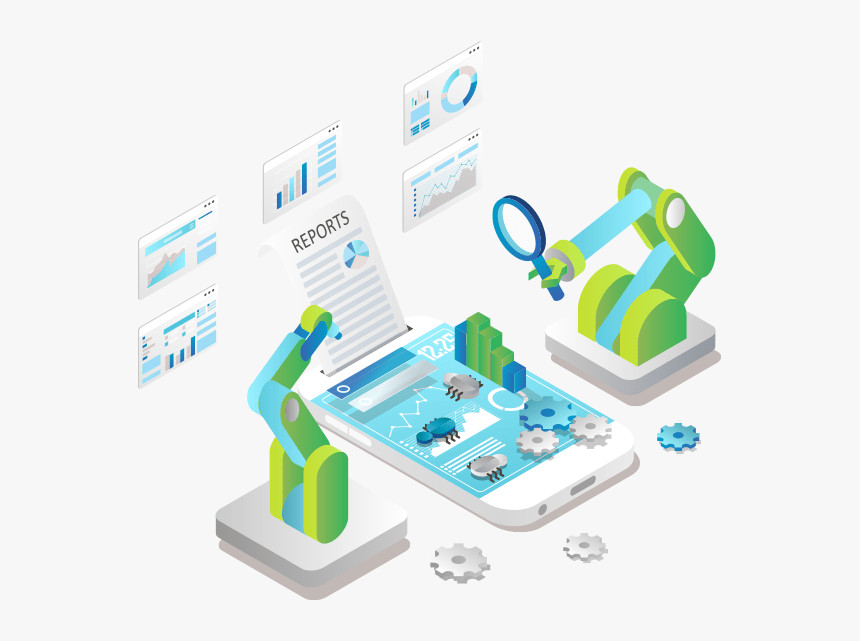Before diving into the specifics, you might wonder, why enrolling in a software testing course like manual testing is important when automation is gaining so much attention. Manual testing, however, remains vital in various stages of software development. It allows testers to identify issues that automated scripts might overlook and ensures a human-centric approach to user experience. Enrolling in a software testing course for beginners provides an essential understanding of how to think like a tester, which is an invaluable skill.
Table of Contents
ToggleWhy Take a Manual Testing Course?
Before diving into the specifics, you might wonder, why take a manual testing course when automation is gaining so much attention. Manual testing, however, remains vital in various stages of software development. It allows testers to identify issues that automated scripts might overlook and ensures a human-centric approach to user experience. A manual testing course for beginners provides an essential understanding of how to think like a tester, which is an invaluable skill.
1. Understanding the Basics of Software Testing
A beginner manual testing course introduces you to the fundamentals of software testing, ensuring you understand the difference between manual and automated testing, the testing lifecycle, and the roles involved in quality assurance (QA). These manual testing skills for beginners form the backbone of your journey as a tester. You’ll also learn how to work with development teams, create test cases, and write detailed bug reports.
2. Hands-on Experience with Real-World Projects
The best manual software testing training programs offer practical, hands-on experience. Rather than just theory, you will get the chance to work on live or simulated projects where you’ll apply your learning to real-world situations. This experience is essential for building confidence and understanding how testing works in a real environment. A manual testing certification for beginners can also enhance your resume by showing potential employers that you’ve applied your skills in real scenarios.
3. Learn Manual Testing Basics at Your Own Pace
For many beginners, flexibility in learning is crucial. One of the key benefits of manual testing training is that many programs are available online, allowing you to learn manual testing basics at your own pace. Whether you’re juggling other responsibilities or need to balance work and study, an introductory manual testing course can be tailored to fit your schedule. This flexibility ensures that you can achieve your learning goals without overwhelming yourself.
4. Building a Strong Foundation for Automation
Although manual testing is different from automation, having a strong foundation in manual testing can significantly benefit you if you decide to branch out into automation later in your career. Many professionals start with manual QA testing training and then move on to learn automation tools. Understanding how to test manually helps you develop a sharp eye for detail, which is crucial when setting up automation scripts.
5. Developing Critical Thinking and Problem-Solving Skills
One of the most important manual testing skills for beginners is the ability to think critically and solve problems. Manual testers need to think like users, finding potential bugs or usability issues that might not be apparent in automated tests. A manual testing course for beginners teaches you how to approach testing with this mindset, enhancing your ability to spot errors that could impact the user experience.
6. Job Opportunities and Career Growth
Completing a manual testing certification for beginners opens doors to numerous job opportunities. Manual testers are in demand in many industries, particularly in companies that focus on user experience and want to ensure their software is user-friendly. Additionally, manual testing roles are excellent entry points for a career in QA, and they often lead to more advanced positions such as QA Analyst, QA Engineer, or Automation Tester.
7. Affordable and Accessible Learning
Compared to other technical fields, manual testing is relatively affordable to learn. Most manual software testing training programs are reasonably priced and accessible to anyone interested in the field. This makes it easier for beginners to get started without making a significant financial investment upfront.
8. Certification Enhances Credibility
A manual testing certification for beginners validates your knowledge and skills, making you more attractive to potential employers. It shows that you have undergone structured training and are committed to building a career in software testing. Certifications can also boost your confidence and give you a competitive edge when applying for jobs.
9. Versatility Across Industries
Manual testing skills are not limited to any specific sector. Software is integral to nearly every industry today, meaning manual testers are needed in various sectors, including finance, healthcare, education, and e-commerce. With a strong foundation in manual testing, you can choose the industry that interests you the most and apply your skills across multiple domains.
10. Practical Training for Beginners
An introductory manual testing course typically covers essential topics such as:
- Writing and executing test cases
- Identifying and reporting bugs
- Testing different software functionalities
- Working with development teams
- Basic understanding of software development methodologies
These topics provide a well-rounded foundation in manual testing and are essential for any beginner looking to start their journey in QA.
Frequently Asked Questions (FAQs)
1. What is a Manual Testing Course for Beginners?
- A manual testing course for beginners is a training program designed to introduce individuals to the fundamentals of software testing, focusing on manual testing techniques, strategies, and tools.
2. What are the benefits of manual testing training?
- The benefits of manual testing training include hands-on experience, foundational knowledge of software testing, job opportunities, and the ability to develop critical problem-solving skills.
3. Why should I take a manual testing course instead of jumping into automation?
- Starting with manual testing helps build a solid foundation in understanding testing methodologies and user-centric thinking, which is essential before moving into automation.
4. How long does it take to complete a beginner manual testing course?
- The duration of a beginner manual testing course can vary, typically ranging from a few weeks to a few months, depending on the intensity and format of the course.
5. Do I need a technical background to enroll in a manual testing course?
- No, many manual software testing training programs are designed for individuals with no technical background. The focus is on developing the necessary skills from scratch.
6. Is manual testing still relevant with the rise of automation?
- Yes, manual testing remains crucial for areas like user experience, exploratory testing, and detecting edge cases that automation may overlook.
7. What is the role of a manual tester in a QA team?
- A manual tester’s role involves testing software by executing test cases, identifying bugs, collaborating with developers, and ensuring the product meets user expectations.
8. Will I receive certification after completing the course?
- Most manual testing certification for beginners programs offer certification upon successful completion, which can boost your job prospects.
9. Can I find job opportunities after completing manual QA testing training?
- Yes, manual testers are in demand, and completing manual QA testing training can open up job opportunities in various industries.
10. What skills will I gain from a manual testing course?
- You will learn manual testing basics, including test case creation, bug reporting, and collaborating with teams, which are essential for a career in software testing.
Conclusion
Taking a manual software testing course for beginners is an excellent way to break into the world of software testing. Whether you’re looking for job security, flexible learning options, or the chance to develop essential technical skills, a beginner manual testing course is a great starting point. With the combination of practical training, industry-relevant knowledge, and certification, you’ll be well on your way to building a successful career in software testing.








 Call us:+1 (289)-499-4040
Call us:+1 (289)-499-4040 Contact Us
Contact Us